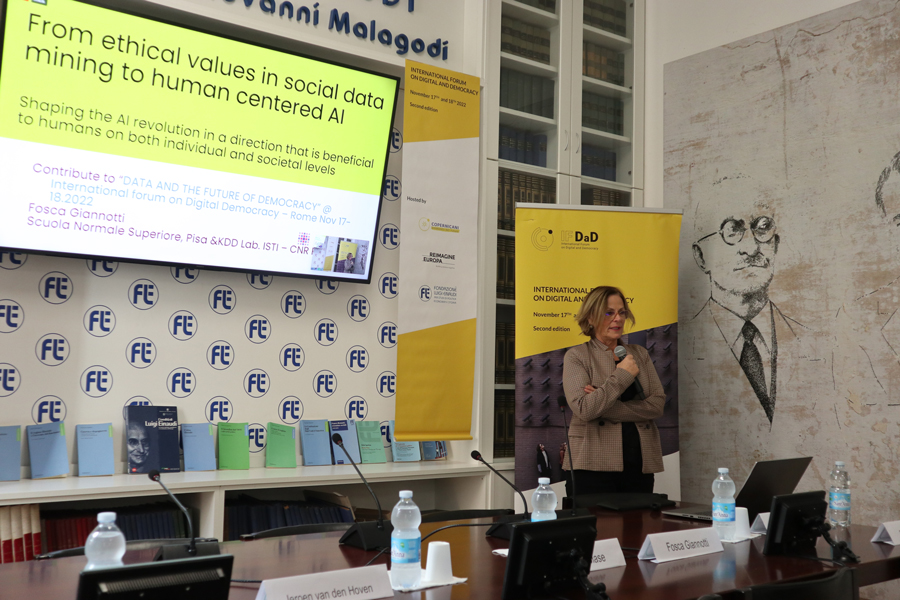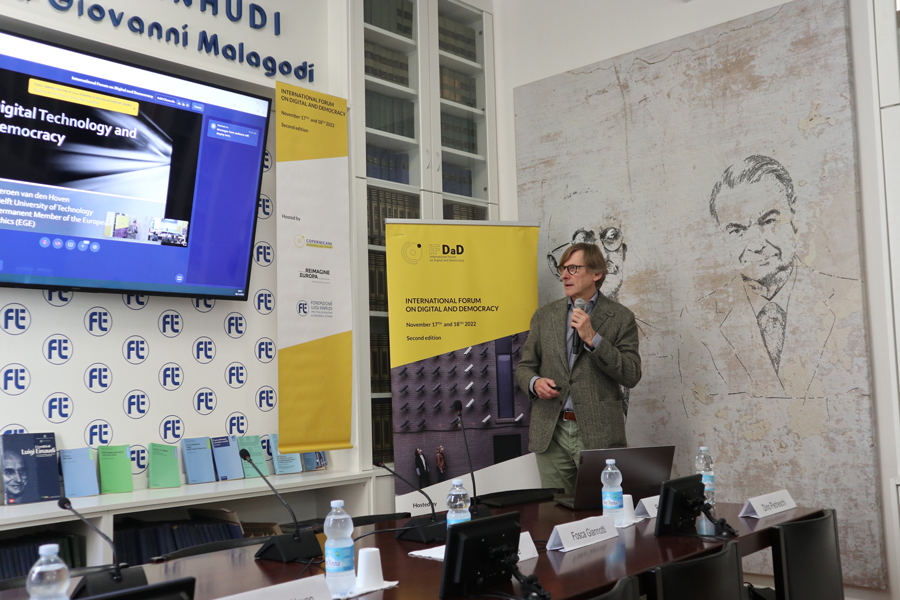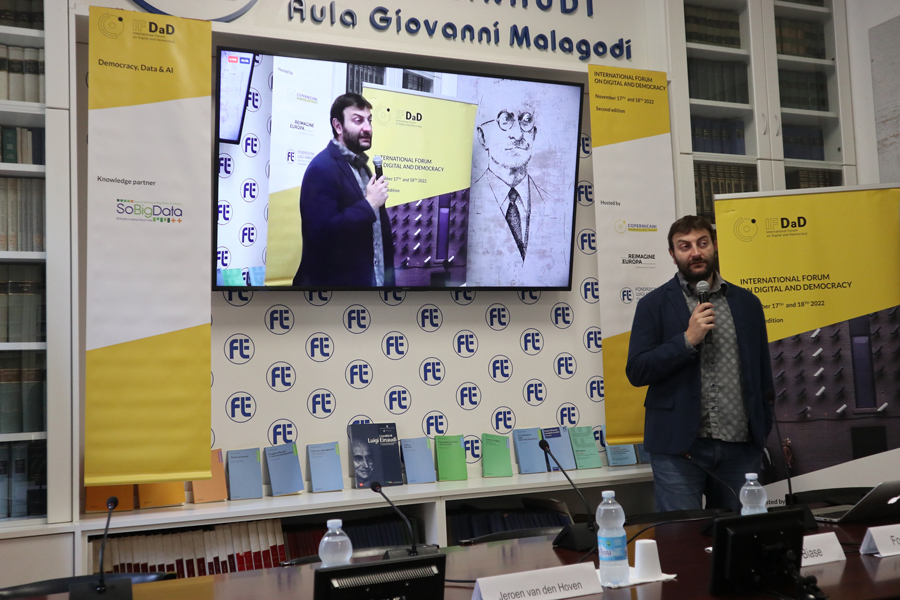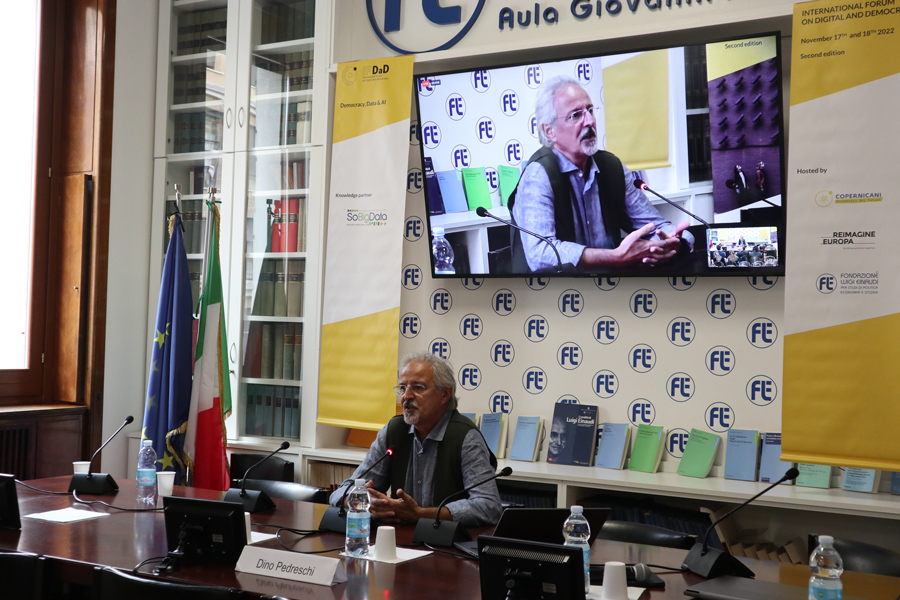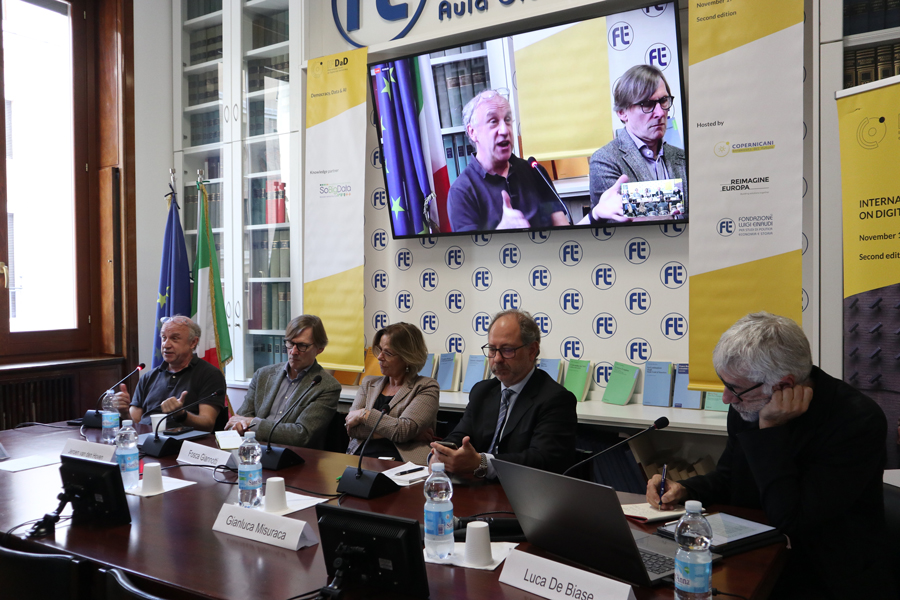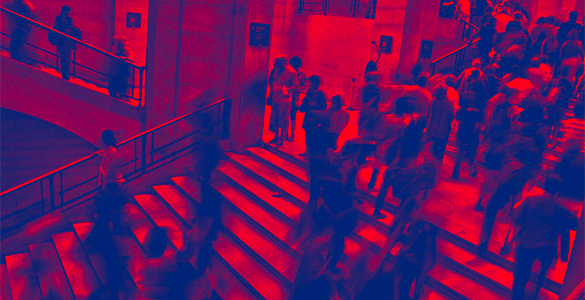The future of Democracy in the digital age
On November 18th, a special session dedicated to the SoBigData Research Infrastructure was held as part of the second edition of the International Forum on Digital and Democracy, a two-day conference which has the purpose of convening academics, researchers and policymakers to discuss the relationship between digital technologies and democratic institutions and to debate and exchange information, ideas and good practices about Digitalization and Democracy.
The session, introduced by the coordinator of SoBigData RI, Roberto Trasarti, focused on the democracy and reliability of AI and SoBigData RI's approach to these issues.
Professor Fosca Giannotti (Scuola Normale Superiore) explained how artificial intelligence and other emerging technologies should be developed to benefit humans from a personal and societal perspective. "Several technologies developed by humans were very risky in their early stage, but we have always been capable of devising safety mechanisms to cope with those risks", stated Professor Giannotti. She added that researchers made huge steps to understand and address data and algorithmic biases in recent years.
Professor Kalina Bontcheva (University of Sheffield) described her work on misinformation and presented interesting data on how debunking posts are almost four times less likely to be shared than the original misinformation they are meant to disprove. Therefore, the institutions could improve their strategy to counter misinformation by monitoring the sources spreading it rather than debunking their false claims.
Jeroen van den Hoven, professor of Ethics and Technology at Delft University of Technology, developed the topic of designing digital tools that fit within the values of human rights and the rule of law that characterizesthe European project. The same issue was also central to the following roundtable, in which Professor van den Hoven was joined by Paul Lukowicz, Professor of Computer Science at DFKI; Gianluca Misuraca, Vice President for Tech Diplomacy at intouch.ai; Luca De Biase, Journalist and Media research Director at Re-Imagine Europa; and Professor Giannotti. They discussed how to enhance safety in the digital environment. "The beauty but also the risk of technologies such as AI is that they can learn by themselves, thus creating many unexpected positive and negative consequences", explained Mr Misuraca. He added, "Precisely for this reason, citizens must be empowered by giving them the necessary knowledge to be engaged in such a debate".
"Direct and indirect stakeholders need to be represented in any design process to ensure all perspectives are represented, and no one is left behind when the results are deployed", explained Professor van den Hoven. "The fact that the traditional mechanisms of democracy devised more than a century ago are failing does not mean the ideal of democracy should be abandoned. We must ensure new regulations are not focused on retaining those old mechanics but on the underlying democratic ideals", stated Professor Lukowics. "We should keep in mind that such a debate will influence the daily lives of future generations; hence, also their values and views should be taken into consideration", added Mr De Biase. As summarised by Professor Giannotti, "There is an urgent need for a space where unbiased datasets built according to those values are available for scientists, researchers, and companies".
Professor Dino Pedreschi (University of Pisa) concluded the session by remarking on the digital revolution's major negative consequences that governments have only recently been trying to address: inequality, discrimination, and polarisation. "We need to think about what new kind of digital institutions can support the ideals of democracy in our time. New models for decentralised collaborative platforms emerged; we still need to devise the right tools to engage the European Citizens in reshaping their own future”.
